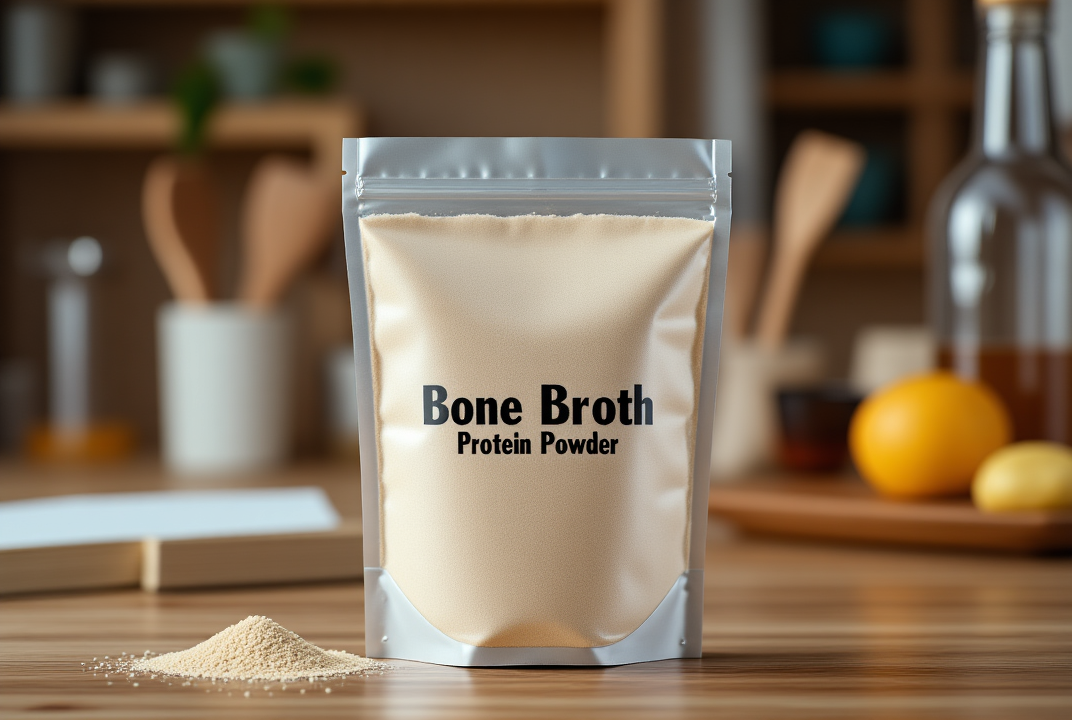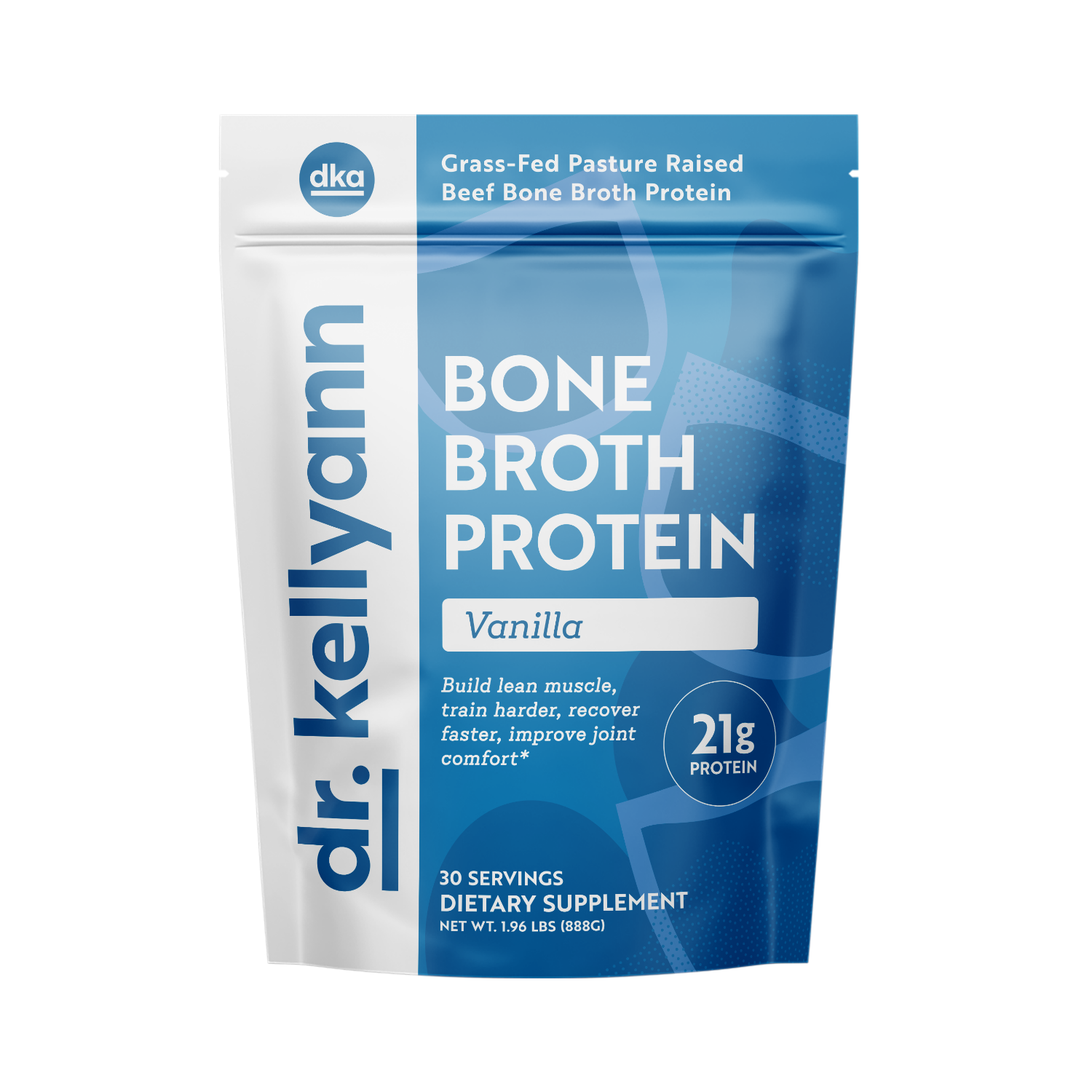
Bone broth protein powder has surged in popularity among health enthusiasts, fitness devotees, and anyone seeking a clean, nutrient-dense alternative to traditional protein supplements. But as more people turn to bone broth for its gut, joint, and skin benefits, a crucial question arises: Is bone broth protein powder a complete protein? Understanding whether this trending supplement delivers all essential amino acids is key for those who want to optimize their nutrition, support muscle recovery, and make informed choices for their wellness journey.
What Is a Complete Protein?
A complete protein is a dietary protein source that contains all nine essential amino acids in sufficient quantities required by the human body for optimal health. These essential amino acids cannot be produced by the body and must be obtained through food. Complete proteins are crucial for building and repairing tissues, supporting immune function, and maintaining muscle mass. While animal-based proteins like eggs, dairy, and meat are typically complete, many plant-based sources lack one or more essential amino acids, making it important for those on restrictive diets to combine foods or choose supplements that deliver a full amino acid profile.
Why Does It Matter If a Protein Is Complete or Incomplete?
- Supports Muscle Growth and Repair: Complete proteins provide all the essential amino acids needed for building and repairing muscle tissue, which is especially important for athletes and active individuals.
- Promotes Optimal Health: Essential amino acids play key roles in hormone production, immune function, and enzyme activity, making complete proteins vital for overall wellness.
- Prevents Nutritional Deficiencies: Relying on incomplete proteins without proper food combinations can lead to amino acid deficiencies, impacting energy, mood, and long-term health.
- Enhances Recovery and Performance: Consuming complete proteins helps speed up recovery after exercise or injury by supplying the body with the necessary building blocks for tissue repair.
- Supports Dietary Goals: For those following specific diets like paleo, keto, or plant-based, ensuring protein completeness helps meet nutritional needs without compromising dietary restrictions.
Is Bone Broth Protein Powder a Complete Protein?
Bone broth protein powder is not considered a complete protein because it typically lacks sufficient amounts of certain essential amino acids, most notably tryptophan. While it does provide a broad spectrum of amino acids—including glycine, proline, and glutamine, which are beneficial for joint, gut, and skin health—it falls short of delivering the full profile required to be classified as a complete protein. This means that while bone broth protein can be a valuable addition to your diet, especially for those seeking collagen-rich benefits, it may not fully meet your body’s needs for muscle building and overall protein synthesis unless paired with other protein sources that supply the missing amino acids.

What Foods Are Complete Proteins?
Animal-Based Complete Proteins
Animal-based foods are among the most reliable sources of complete proteins. Examples include eggs, dairy products like milk, yogurt, and cheese, as well as meats such as chicken, beef, pork, and fish. These foods naturally contain all nine essential amino acids in optimal ratios, making them ideal for supporting muscle growth, tissue repair, and overall health. For individuals who consume animal products, incorporating these foods into the diet is a straightforward way to ensure adequate intake of complete proteins.
Plant-Based Complete Proteins
While many plant foods are considered incomplete proteins, there are notable exceptions that provide all essential amino acids. Quinoa, soy products (such as tofu, tempeh, and edamame), buckwheat, chia seeds, and hemp seeds are all plant-based sources of complete protein. These options are especially valuable for vegetarians and vegans seeking to meet their protein needs without relying on animal products. Including a variety of these foods in a plant-based diet can help ensure a balanced amino acid profile.
Combining Incomplete Proteins
For those who primarily eat plant-based foods that are not complete proteins, combining different sources can create a complete amino acid profile. Classic examples include pairing rice with beans, or whole grain bread with peanut butter. These combinations allow the amino acids missing from one food to be supplied by another, effectively providing the body with all the essentials it needs for optimal function and health.
Complete Protein 101
|
Key Concept |
Details |
Examples |
|
Complete Protein |
Contains all nine essential amino acids in adequate amounts |
Eggs, dairy, meat, fish, quinoa, soy, buckwheat |
|
Incomplete Protein |
Missing one or more essential amino acids |
Most grains, nuts, seeds, legumes |
|
How to Get Complete Protein |
Combine different incomplete protein sources to cover all essential amino acids |
Rice + beans, whole grain bread + peanut butter |
|
Why It Matters |
Essential amino acids are required for muscle repair, immune function, and overall health |
Supports recovery, energy, and wellness |
|
Bone Broth Protein Status |
Not a complete protein—lacks sufficient tryptophan and possibly other essential amino acids |
Best paired with other protein sources for completeness |
|
Plant-Based Complete Proteins |
Some plants naturally provide all essential amino acids |
Quinoa, soy, chia seeds, hemp seeds, amaranth |
|
Who Needs Complete Proteins |
Important for everyone, especially athletes, active individuals, and those on restrictive diets |
Fitness enthusiasts, paleo/keto/vegan dieters |
How Does Bone Broth Protein Compare to Other Proteins?
Bone broth protein stands out for its rich collagen content and unique amino acid profile, offering benefits for joint, gut, and skin health that aren’t typically found in whey or plant-based proteins. However, unlike whey, egg, or soy protein—which are all complete proteins containing all essential amino acids—bone broth protein is not considered complete, as it lacks adequate levels of certain amino acids like tryptophan. While it’s an excellent option for those seeking a dairy-free, paleo-friendly supplement with anti-inflammatory properties, individuals focused on muscle building or overall protein synthesis may need to combine bone broth protein with other sources to ensure a full spectrum of essential amino acids.
Are All Bone Broth Protein Powders the Same?
Not all bone broth protein powders are the same—there can be significant differences in quality, sourcing, ingredients, and nutritional profiles among brands. Some powders are made from grass-fed or pasture-raised animals, while others may use conventional sources, impacting the nutrient density and purity of the final product. Additionally, manufacturing processes vary, with some brands using gentle, low-heat methods to preserve amino acids and collagen, while others may use higher temperatures that can degrade these nutrients. Ingredients lists also differ, with some powders containing added flavors, sweeteners, or fillers, while others remain pure and unflavored. For the best results, it’s important to choose a bone broth protein powder that aligns with your dietary preferences, quality standards, and health goals.
Tips For Choosing Quality Bone Broth Protein Powder
- Check the Source of Ingredients: Look for bone broth protein powders made from grass-fed, pasture-raised, or free-range animals to ensure higher nutrient quality and fewer contaminants.
- Review the Ingredient List: Choose products with minimal, clean ingredients—ideally just bone broth protein and natural flavors—while avoiding added sugars, artificial sweeteners, or unnecessary fillers.
- Assess the Processing Method: Opt for powders processed with low heat or gentle drying techniques, which help preserve the integrity of amino acids, collagen, and other beneficial nutrients.
- Verify Third-Party Testing: Select brands that provide third-party testing or certifications to guarantee purity, safety, and transparency regarding heavy metals, allergens, and contaminants.
- Consider Flavor and Additives: If you prefer flavored options like vanilla, ensure the flavorings are natural and free from synthetic additives, so you get a tasty product without compromising on quality.

Conclusion
Bone broth protein powder offers a unique blend of benefits, especially for those seeking joint, gut, and skin support, or following paleo and dairy-free diets. However, it’s important to recognize that bone broth protein is not a complete protein and may need to be paired with other sources to ensure you’re getting all essential amino acids for optimal health and muscle recovery. When choosing a bone broth protein powder, prioritize quality ingredients, transparent sourcing, and minimal processing to maximize nutritional value. By understanding its strengths and limitations, you can make an informed decision and incorporate bone broth protein into your routine in a way that best supports your wellness goals.
Final Thoughts
Curious if bone broth protein is the right choice for your wellness routine? Discover Dr. Kellyann’s best sellers to find premium options like chicken, beef, and french onion bone broths, each crafted to support your gut, skin, and joint health. For a daily anti-aging boost, try Collagen Peptides, or enjoy a delicious protein upgrade with Bone Broth Protein Vanilla. Explore all the nourishing ways to enhance your health at Dr. Kellyann’s.
Sources
- https://www.piedmont.org/living-real-change/what-is-a-complete-protein
- https://www.healthline.com/nutrition/animal-vs-plant-protein
- https://healthcenter.uga.edu/protein-powder-the-what-why-how-to-choose/






